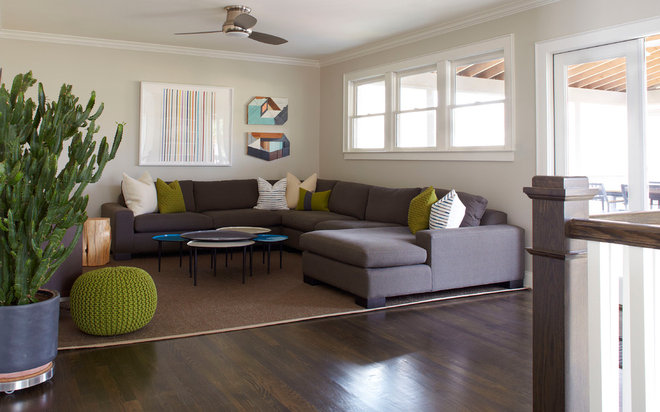It’s not easy being a caregiver to elderly parents or loved one with Alzheimer’s disease or another form of dementia. I learned this watching my mother-in-law as she declined over the last few years. She no longer lives with my brother-in-law but in an assisted living program. With so many people with elderly parents in similar situations these days, I thought I would share a few hints with you.
Please note that there are many forms of dementia and different stages within each disease. It may be that some of these tips won’t be practical right now but will be in a year or two. Or a few won’t be appropriate at all for your loved one. See what works for your elderly parents or loved ones right now, and come up with your own methods.
Declutter your home for your elderly parents’ comfort.
One of the most important goals of caring for people with dementia — besides keeping them from physical harm — is to keep them emotionally on an even keel. Reducing stimuli in the person’s environment is one way to do this. A serene environment is more conducive to a serene mind, and the reduced confusion will help you both.
Manage the light.
Joanne Koenig Coste wrote a book called Learning to Speak Alzheimer’s, which I highly recommend. In it, she tells a story of an older couple dealing with the wife’s dementia. Although uncertain of how it would go, the husband invites guests over. An emotional outburst on the part of the wife baffles everyone and results in the guests having to leave early.
Afterward the husband does a brilliant thing: He literally puts himself in his wife’s place, sitting where she had been during the visit. Right away, he notices a terrible glare from the window across the room. Unable to identify what the problem was and express her need for a remedy, she signaled her distress the only way she knew how. After that, the husband is able to control the light in his wife’s environment and prevent future disturbances.
Another light-related challenge is the phenomenon known as “sundowning.” This is when the sun setting prompts feelings of depression and anxiety in those with dementia. A very common symptom, sundowning can be quite distressing to the person suffering from the disease, as well as to those around him or her.
To help combat this symptom in your own home, you may want to install more blinds or drapes, or to move furniture so that those who are seated have the windows behind them. Toward the end of the day, increased artificial light can actually help minimize the effects of sundowning. Consider putting a few lights on a timer to eliminate the need for you to remember to turn them on. This can also be helpful because it keeps changes in light more consistent from day to day.
Eliminate unnecessary noise.
Think of it as decluttering the sound space in and around your home. Although you may be able to enjoy or tune out a sound like a radio or a wind chime, your loved one may not. This can result in a kind of sensory overload that can cause distress. Once again, the goal is a peaceful atmosphere that will keep your elderly parents calm and unperturbed.
Less truly is more when it comes to dementia, and what may feel deadly dull to you could be exactly what your family member needs. So keep the stereo off and box up the wind chimes for a while. If you have a dog that tends to bark when the mail carrier or a neighbor walks by, close the blinds or arrange the furniture so that your pet is less likely to see and be provoked by what’s going on outside.
If you live in an urban or other area with frequent loud sounds that are outside your control (like sirens from emergency vehicles), a white-noise machine may help mask them.
Set up an alarm system to protect elderly parents
Wandering is a common byproduct of dementia, and it can be quite dangerous. To prevent such scary situations like , it’s good to have a system in place that lets you know when your elderly parents are attempting to leave the house. There are systems designed specifically for this purpose, such as doormats that sound an alarm when walked on. However, you can set up something as simple as a bell attached to the inside of the front door. A bell from a Christmas decoration can be repurposed and work just as well as something fancier.
When you hear the bell, you can go for a walk with the person or gently redirect him or her to another activity.
Create an indoor space.
Give your loved one a special place to sit and doze. A chaise is perfect for this, but a comfortable chair with an ottoman or a couch could work just as well. The important thing is to keep it consistent, a place the person can return to each visit and feel comfortable.
In terms of placement, make sure this special seating area is out of the way of any household hustle and bustle, yet still within view. That way, your family member can relax and not be in the way, but you can keep an eye out and ensure the person’s safety.
It’s nice to have a coffee or side table nearby where you can place an item or two to keep your loved one happily occupied. The two biggest hits for my dad turned out to be a book full of pictures of tools and a small mbira, or thumb piano. But your family member will be different. Try various items and don’t overload the person with too much stuff. Commit to a decluttered space and stick to it.
Create an outdoor space.
Create a safe space outside where your loved one can enjoy some fresh air, the sounds of birds and the warm sun on nice days. Make sure the area is enclosed, and perhaps add another bell to the gate. Dappled sun or shade is preferable to full sun; a bench or chair under a tree or an umbrella is a good idea.
Remove unnecessary rugs.
Besides being a tripping hazard, rugs can cause confusion and anxiety. Although it may be difficult for those of us with normal cognitive function to understand, a person with dementia may perceive a rug as a hole and try to walk around it or jump over it, or may simply freeze, not knowing what to do. It’s better to get it out of the space altogether.
If you must have a rug, go for something with a low color contrast against the floor (dark against dark or light against light).
Keep fresh clothes at the ready.
Prevent embarrassment on the part of your family member, and make things easier for yourself, by keeping a change of clothes handy for him or her. At least one pair of pants and two or three pairs of underwear are the most important items for obvious reasons, but socks and a clean shirt or two are also good to have on hand.
Designate one drawer in a dresser for this purpose to keep your family member’s clothes from getting mixed up with everyone else’s belongings. When an accident does occur, you don’t have to sacrifice your spouse’s clothes or keep your parent waiting while you run the things through the wash.
Soon enough, your loved one will be in a fresh set of clothes and hopefully more content. One of the few blessings of memory loss is that folks suffering from it forget mishaps within a short time and are unlikely to feel embarrassed by them for long.
Provide memories through images.
If you already have treasured photos on display in your home, don’t put them away until you see how they affect your family member. If you don’t have pictures up, think about creating a grouping of pictures somewhere your loved one can enjoy them. A contained space is preferable to scattered throughout the house. That way, visual noise is kept to a minimum, and you have a single place you can come back to and enjoy together.
Continue to capture new memories as well. One day, you’ll treasure this challenging but special time you had with your loved one, and you’ll be glad you took steps to make it as enjoyable as it could be for you both.








